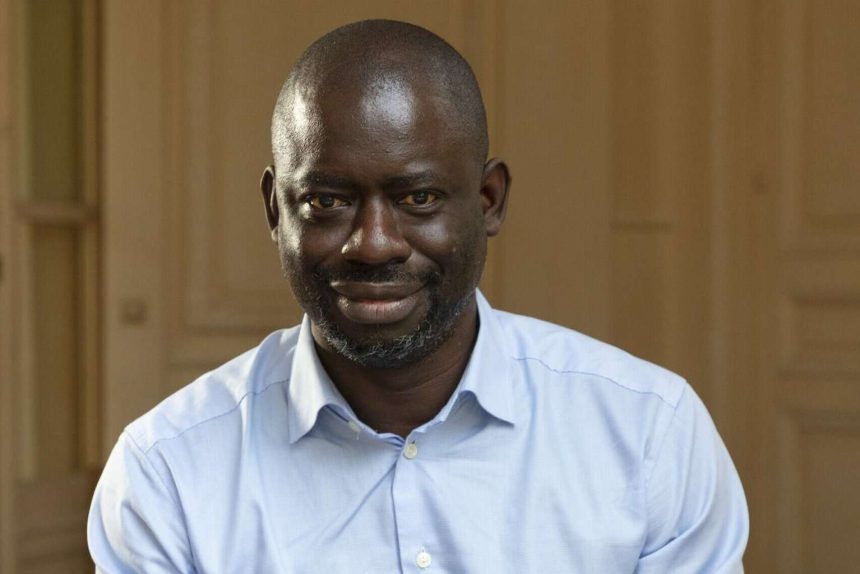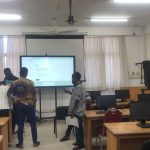Professor of African History and Romance Studies at Duke University, Prof. Felwine Sarr has suggested the re-engineering of Africa’s belief and knowledge systems to promote the paradigm.
Prof. Sarr was speaking at the Merian Institute for Advanced Studies in Africa (MIASA) at the University of Ghana in conjunction with the Institute of African Studies and the Department of Philosophy and Classics organizing the 2023 Anton Wilhelm Amo Memorial Lecture on 12th December, 2023 on the theme, ‘Building African Ecologies of Knowledge’.
The event was graced by various policymakers, academics, students and the general public to discuss issues centered around indigenous knowledge systems as well as to celebrate the life of renowned Ghanaian-German Philosopher Anton Wilhelm Amo and his thoughts on development on the continent and beyond.
In his speech, Prof. Sarr highlighted Africa’s cultural diversity and rich traditions as a source of valuable knowledge. He emphasizes how indigenous societies drew wisdom from their leaders, fostering a sense of communal belonging that promoted socioeconomic development for
“ Before the drawbacks on Africa’s civilization caused by the vestiges of colonialism centuries ago, our forebears despite not having formalized education were able to use their local culture and traditional knowledge to create a sustainable and growth oriented society built on trust, communal belonging, respect for constituted authority mostly through Chiefs and their elders which stood the test of time and passed on seamlessly from one generation to the other with no continuous strife for material wealth and possession as pertained in the West at the time.”
According to Prof. Sarr, Western colonial masters belittled the indigenous African culture to enrich themselves, hence damaging not only Africa’s unique identity but destabilizing continental progress.
“As a step to weaken and subdue the organized nature of African countries and societies, the leaders from the West who were set on enriching themselves, created false narratives around the continent as less developed and backward looking which triggered their invasion of our countries and onset of colonization to destabilize our progress.”
“…they belittled our belief and knowledge systems to fit their own selfish agenda in the over 400 years they forcefully occupied not only our lands and siphoned our minerals but destroyed our unique identity as Africans and our ways of life.”
Prof. Felwine Sarr intimated that by re-vamping the sense of community in Africa, the impact colonialism has had on the continent’s identity can be progressively reversed.
“As we seek to move away from the collateral damage caused by the intense impact of the colonial masters on our mentality and knowledge systems…it is noteworthy to deconstruct the white man’s knowledge foisted on us for centuries to achieve the selfish aims of the colonial master.”
“The only trite way to generate ecologies of knowledge that redefines the truest essence of the black man is to create a consciousness that societies and traditions are not all the same and as such local preconditions by leaders of society on the continent must be generated with deep thought in order to bring back the image of Africa as the prize jewel it connotes before racial and epistemological damage carried out by the West on the psyche of the black man”.
Prof. Felwine Sarr is a humanist, philosopher, economist, and musician and the Anne-Marie Bryan Chair in French and Francophone Studies at Duke University. He is the author of Afrotopia (University of Minnessota Press, 2019, tr. by Drew S. Burk). Well-known for his groundbreaking report “The Restitution of African Cultural Heritage: Toward a New Relational Ethics,” Sarr taught at the University of Gaston-Berger in Saint Louis, Senegal, where he was previously dean of its Economics and Management department.
His research focuses on economic policies, the development economy, econometrics, epistemology, and the history of religious ideas. In addition to Afrotopia, he has published the meditative essay Dahij (Gallimard, 2009), the collection of short stories 105, rue Carnot, the philosophical text Méditations africaines (Mémoire d’encrier, 2011), as well as the essay “Habiter le monde” and the collection “Ishindenshin,” both published by Mémoire d’Encrier. Further, he cofounded the Laboratory for the Analysis of Societies and Powers/Africa-Diasporas (LASPAD) in Saint Louis, as well as the publishing company Jimsaan in Dakar.
–
Story by: Sika Togoh | univers.ug.edu.gh




